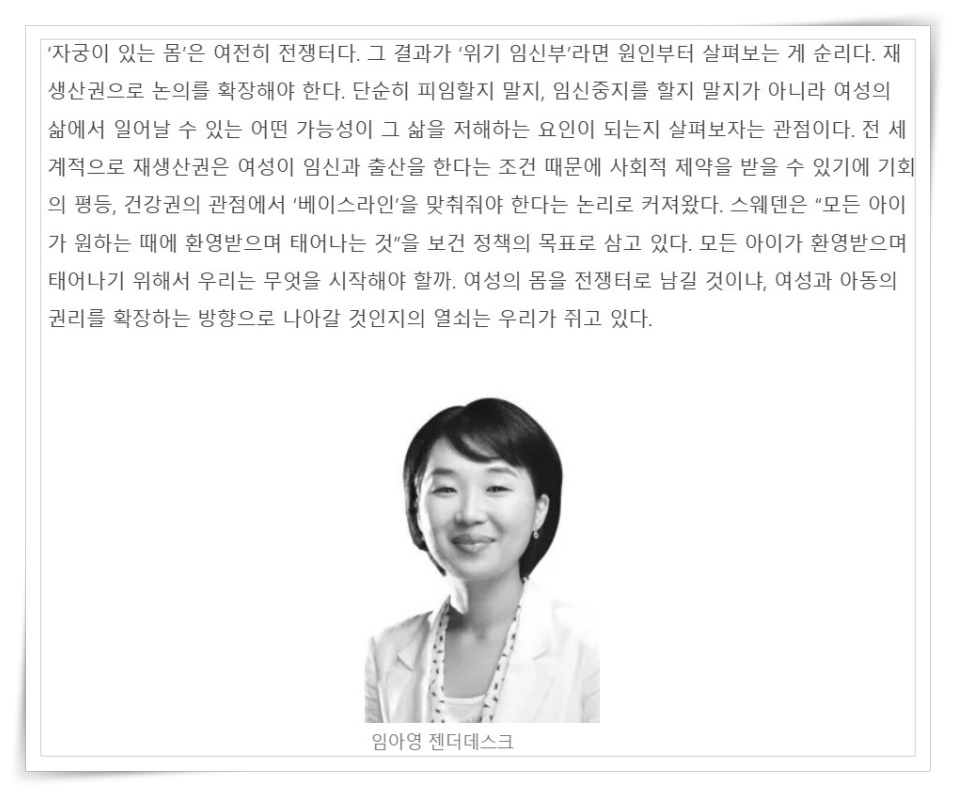Newsletter No.5 
January 4, 2025
Happy New Year! As we enter 2025, Unwed Mothers Initiative for Archiving and Advocacy (UMI4AA) extends
its warmest wishes to all newsletter subscribers for a year filled with happiness. Wishing you a wonderful new year! |

[Top Picks: News from 2024] The "Protected Birth Bill," introduced last year, has sparked significant debate. This policy allows mothers in crisis to give birth anonymously and legally relinquish custody of their child. Critics have raised concerns over the bill's lack of a precise definition for "crisis" and the absence of broader policies to address the needs of vulnerable pregnant women and their unborn children. Nevertheless, the government has been actively promoting this bill, framing it as a measure to safeguard the lives of newborns. As these concerns remain unresolved, the debate surrounding the Protected Birth Bill will continue into 2025. In light of these ongoing discussions, we revisit a notable article from last year’s coverage of the Protected Birth Bill: “Ah-young Lim's Rainbow: The Inequality of the Womb,” published in Kyunghyang Shinmun. 
[UMI4AA Book Recommendation] I Am an Upside-Down Tree by Jinsi Bae In the ongoing debate over the Protected Birth Bill, South Korea’s Ministry of Health and Welfare and its advocates proudly frame the policy as a life-saving measure for children. However, this book raises a poignant question: could the suffering of a child’s life begin precisely at the moment it is “saved”? Children born under this system are severed from their biological families at birth, stripped of their origin stories, and left with only the label of being “abandoned.” Challenging the self-congratulatory narrative of salvation, the children South Korean society once claimed to have 'saved' by sending abroad for adoption have now grown up and are returning, searching for their lost families and traces of their own identities. Now, many of those adoptees have grown up and are returning to Korea in search of their lost families and their origins. Author Bae Jinsi, who has closely observed the lives of Korean adoptees abroad while assisting as an interpreter, shares the stories of eight international adoptees in I Am an Upside-down Tree. The book is profoundly realistic, engaging, and deeply moving. By the time you finish reading, you may find yourself questioning whether the act of "saving a life" truly represents the best course of action for a child. 

[UMI4AA Academic Activities] 1st Seminar Series - Review of the 3rd UMI4AA Seminar Meeting In December 21, 2023, the Unwed Mothers Initiative for Archiving and Advocacy (UMI4AA) held the third session of the 1st seminar series. This session centered on discussing Eunkyung Kim's 2024 paper, "Doing Family, Undoing Family: Mixed-Race Migration to the United States as a Cold War Event, Transnational Family Formation, and Performative 'Family Practice.'" In each session, the session leader presents the paper’s content and shares their reflections. Below is the summary of the presentation offered by the session leader. ■ Presenter's Book Review 1) The insight that international adoption of mixed-race children must be understood within the historical context of the Cold War is particularly compelling. Korean studies scholars abroad, such as Yuri Doolan and Arissa Oh, have pioneered this approach by analyzing the adoption of mixed-race children with a focus on the United States as a Cold War architect in the aftermath of World War II. This paper reaffirms the necessity of moving beyond a strictly national (or domestic) perspective when studying mixed-race adoptees, emphasizing the transnational scope of such phenomena. 2) As a researcher of Korean literature, I found numerous points of resonance while reading this paper. The fact that women in U.S. military camptowns raised mixed-race children with their families and sex workers is depicted in several works of Korean literature. These narratives provide evidence that international adoptions of Korean mixed-race children can be understood as instances of forced separation and displacement. For example, …

 [UMI4AA Archiving Activities]
On March 12, 1975, a fire broke out at Angel’s Home, an overseas adoption facility operated by the Korea Christian Crusade (now known as the Eastern Social Welfare Society), resulting in the tragic deaths of 14 newborns. This devastating incident occurred to infants who had been entrusted to the adoption agency by parents who, hoping for a better life for their children, made the painful decision to relinquish them. - Headline: "Fire at 'Angel's Home' Overseas Adoption Shelter Claims Lives of 14 Infants"
- Subheading: A Decade of Helping 2,000 Adoptions, Advocating for "Excellence Beyond Bloodlines"
- Source: Chosun Ilbo
- Date of Publication: March 13, 1975
Full Article Here ▼ Ironically, however, the editorials in Chosun Ilbo and Dong-A Ilbo regarding this tragic fire unanimously emphasized the urgency of preventing unwed motherhood. - Headline: "Unwed Mothers on the Rise"
- Source: Chosun Ilbo
- Date of Publication: March 13, 1975
Full Article Here ▼ - Headline: "Ramblings"
- Source: Dong-A Ilbo
- Date of Publication: March 15, 1975
Full Article Here ▼

[The 1st UMI4AA Annual Call for Papers]
The term “unwed mother” intersects with a range of complex themes, including minority identity, otherness, motherhood, family normativity, adoption systems and practices, mixed-race and non-mixed-race identities, orphans, child abandonment, the rights of children born outside marriage, social stigma, poverty, diaspora, Christianity, and even eugenics. However, scholarship on unwed motherhood has traditionally framed single mothers primarily as welfare recipients, inadvertently re-marginalizing them and reinforcing the stigma surrounding unwed motherhood.
In response, Unwed Mothers Initiative for Archiving and Advocacy (UMI4AA) is pleased to announce the 1st Annual Call for Papers. This initiative seeks to promote scholarship that examines unwed motherhood as a historical concept and social phenomenon, exploring how “unwed motherhood” has been constructed, represented, transformed, and politicized over time. We warmly invite scholars from diverse academic disciplines to share their perspectives and insights on this critical topic. 

Unwed Mothers Initiative for Archiving and Advocacy (UMI4AA) (+82)-31-772-8639 umi4aa@gmail.com

|
